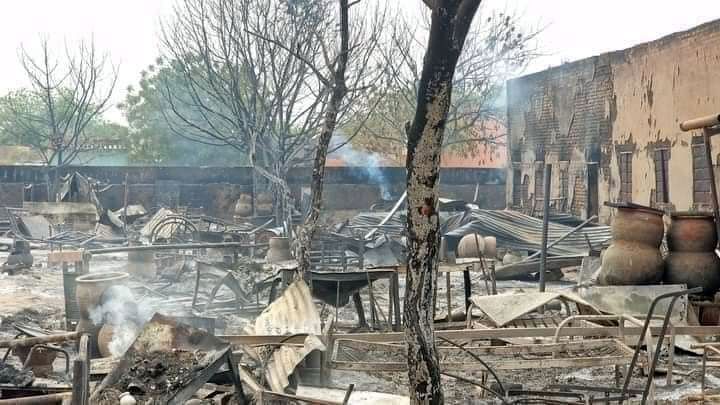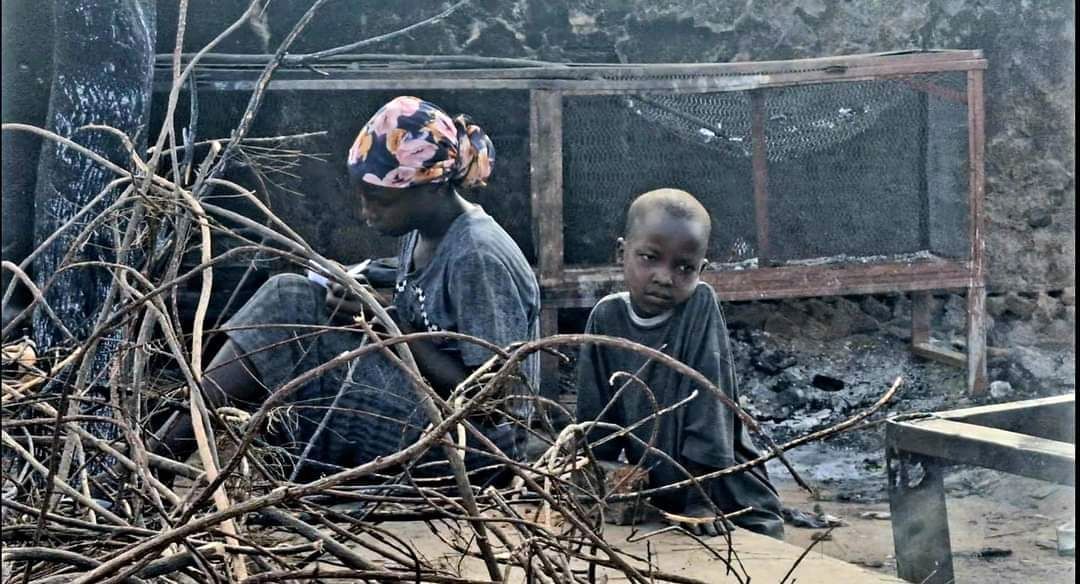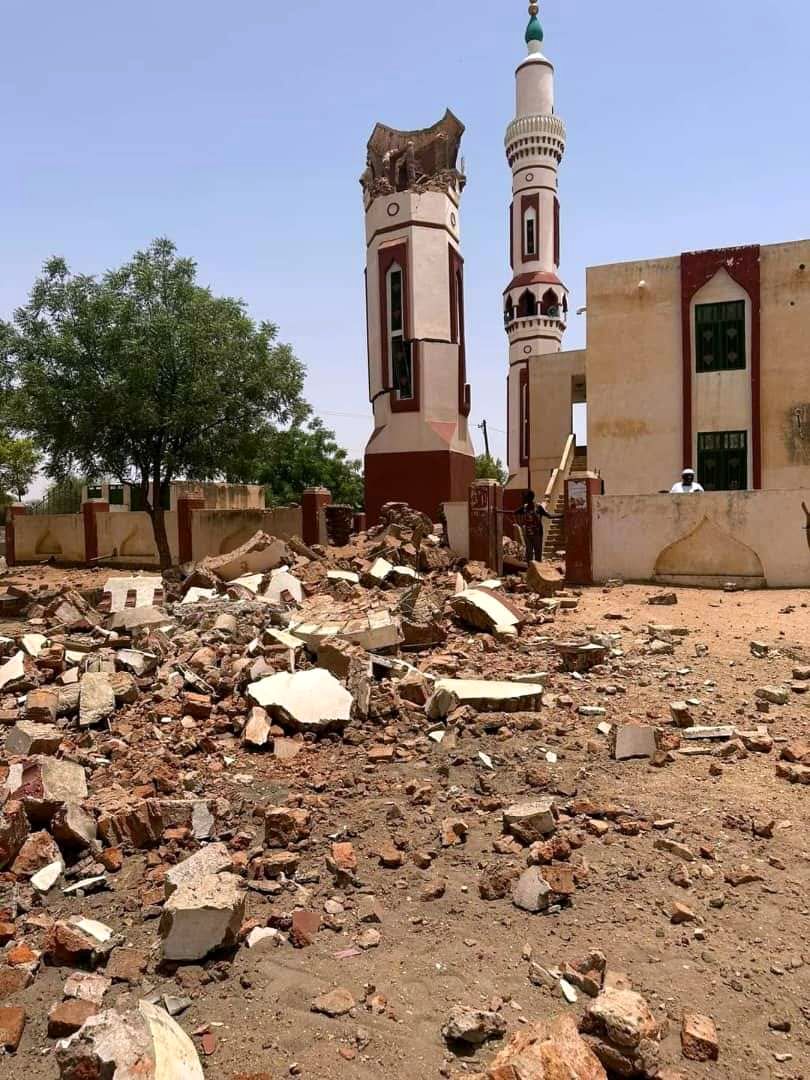Darfur is again the scene of large-scale murders and rapes. Earlier in June, Khamis Abdulla Abaker, a regional governor who spoke of a “genocide”, was killed. Journalist Enaam Alnour reported on the violence in her native region and became a victim herself.
“I’m breathing, so I’m not dead. But am I still alive?” The voice of Enaam Alnour (28) sounds affected, confused. She is now safe in neighboring Chad, but her trials in the Western Sudanese town of El Geneina are still vivid in her mind: her abduction, rape and murder of her relatives.
After the war that broke out in April between generals Hemedti and Burhan in the Sudanese capital of Khartoum, an old conflict flared up in the western region of Darfur. Khamis Abdulla Abaker, governor of El Geneina in West Darfur state, spoke of “a genocide” by the paramilitary Rapid Support Forces (RSF). He was killed by the RSF on Wednesday the 4th of June, shortly after saying in a television interview that “civilians are being killed indiscriminately and in large numbers.” A bloody video of his body was circulated on the internet.
United Nations Secretary-General António Guterres expressed deep concern about “the increasing ethnic dimension of violence and reports of sexual violence” in Darfur, “particularly in El Geneina”.
Alnour calls her hometown “hell on earth, worse than what is happening in Khartoum.” Fighting is also fierce in other cities of Darfur, but nowhere as disastrous as in El Geneina, a city of about 200,000 inhabitants, thirty kilometers east of the border with Chad.
Running water and electricity are gone, as are telephone and internet. Not a single hospital or other health facility is still operating; injured are treated at home, without anesthesia. Food and medicine depots have been looted, displaced persons camps have been burned and neighborhoods have been hermetically sealed off by military forces. According to conservative estimates by doctors and activists, more than 1,100 people have been killed in El Geneina since April, when the battle between the generals broke out.
As culprits, residents of the city point to Hemedti’s Rapid Support Forces, which, together with affiliated Arab militias, launched an attack in April, causing casualties among the African population, largely from the Massalit tribe. The slain governor Khamis had called on the population to defend themselves against the RSF.
The governor did not need much encouragement for this, because the strategically located El Geneina has already experienced Arab militias attacking the city in recent years and occupying land belonging to African farmers in the area. With the violence now, the war of 2003 in Darfur seems to have resumed, when between 200,000 and 300,000 people died.

Independent journalist
Alnour is an independent journalist and worked as a manager at the Women of Change Organization, which advocates for the protection of human rights and in particular women’s rights in war zones. She has been reporting on the rape and murder of women since April. “Our organization has been able to document the violations, killings and atrocities committed by the Rapid Support Forces and Arab tribes associated with them in El Geneina. We have gathered a lot of eyewitness evidence for these violations.”
She became a victim herself. On May 23, she went to the bakery. She was standing in line when RSF kidnappers forcefully pushed her into a pickup truck and gave her a hard blow to the head, after which she lost consciousness. “When I woke up, I found myself in a room that was locked from the outside. In the evening, eight masked persons came with my laptop and cameras, which they had already stolen from our house in the Tadamon neighborhood, setting fire to our house. They asked me about the war crimes stories I was working on, and when they couldn’t find what they were looking for in the computer and on the cameras, they smashed them.”
Two days later, eight masked men again entered the room, Alnour says. They beat her again. And this time she was also raped. There are reports of rapes from all over the country, from Khartoum and Darfur, especially by the RSF. Alnour lost consciousness, only to wake up the next day with a complete stranger family in Tadamon. She was taken to the house of one of her brothers, where she learned about the murder of another brother and ten other relatives.
Her father decided to flee with her to nearby Chad that same day. But that escape also became an ordeal. “We were ambushed and robbed of all our belongings.” In eastern Chad, she joined the 100,000 Darfuri who have already fled, a flood of people that aid organizations barely manage to feed.

Hungry
In Sudan, the UN’s World Food Program expects up to 2.5 million people to go hungry in the coming months, raising the number of people in the country affected by acute food insecurity to more than nineteen million. That is 40 percent of the population. Aid organizations in Chad also fear such scenarios.
The thoughts that go on and on in Alnour’s head torture her. At first, like many Sudanese journalists who stubbornly continue reporting, she was courageous. “I was not afraid to become a target when the war broke out. My fear was only the safety of my family.” She now thinks that her relatives have been killed because of her activities. “As journalists, we always have to pay the price for our work.”

This article was first published on the 15th of June in NRC

